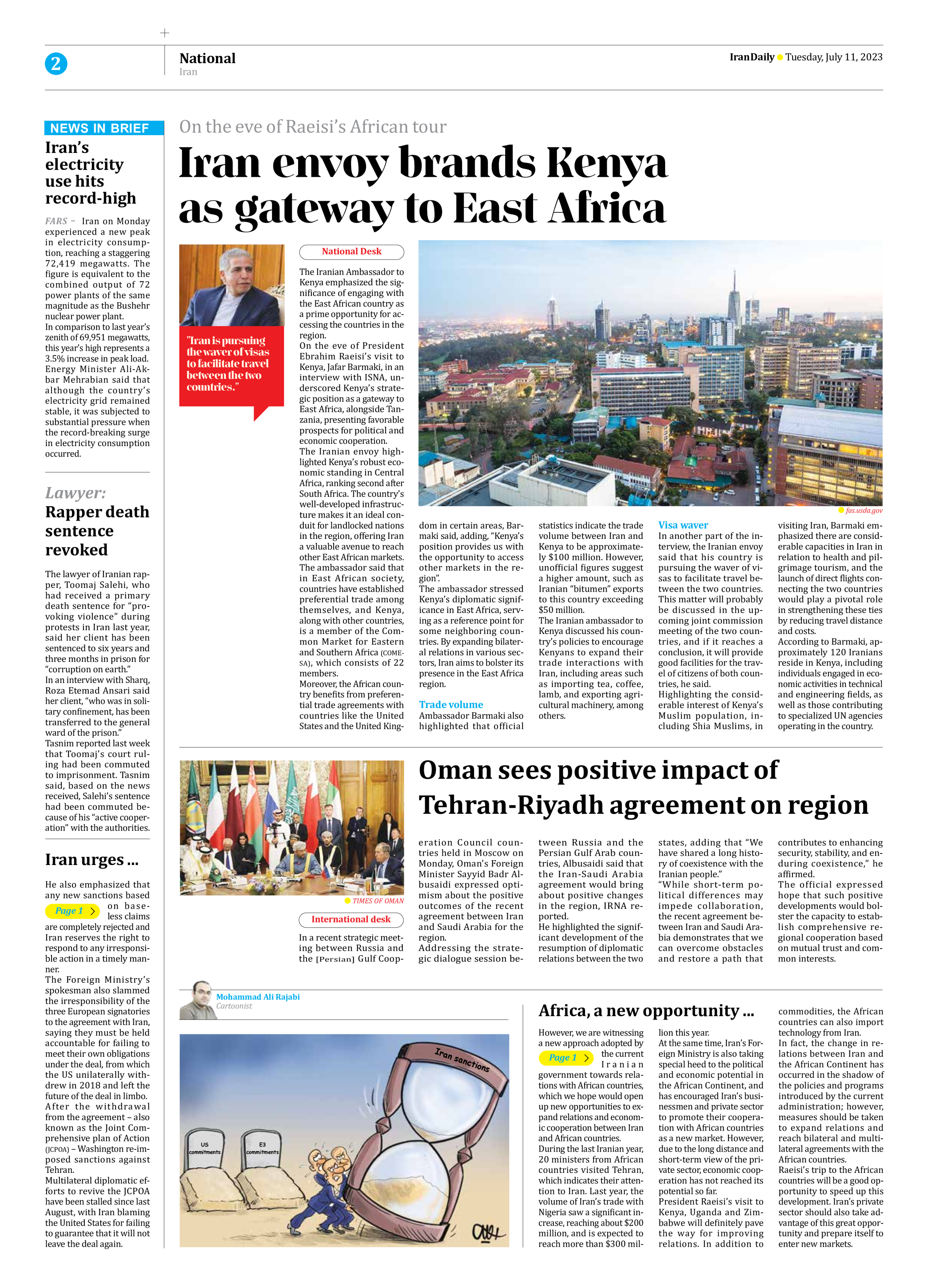
On the eve of Raeisi’s African tour
Iran envoy brands Kenya as gateway to East Africa
The Iranian Ambassador to Kenya emphasized the significance of engaging with the East African country as a prime opportunity for accessing the countries in the region.
On the eve of President Ebrahim Raeisi’s visit to Kenya, Jafar Barmaki, in an interview with ISNA, underscored Kenya’s strategic position as a gateway to East Africa, alongside Tanzania, presenting favorable prospects for political and economic cooperation.
The Iranian envoy highlighted Kenya’s robust economic standing in Central Africa, ranking second after South Africa. The country’s well-developed infrastructure makes it an ideal conduit for landlocked nations in the region, offering Iran a valuable avenue to reach other East African markets.
The ambassador said that in East African society, countries have established preferential trade among themselves, and Kenya, along with other countries, is a member of the Common Market for Eastern and Southern Africa (COMESA), which consists of 22 members.
Moreover, the African country benefits from preferential trade agreements with countries like the United States and the United Kingdom in certain areas, Barmaki said, adding, “Kenya’s position provides us with the opportunity to access other markets in the region”.
The ambassador stressed Kenya’s diplomatic significance in East Africa, serving as a reference point for some neighboring countries. By expanding bilateral relations in various sectors, Iran aims to bolster its presence in the East Africa region.
Trade volume
Ambassador Barmaki also highlighted that official statistics indicate the trade volume between Iran and Kenya to be approximately $100 million. However, unofficial figures suggest a higher amount, such as Iranian “bitumen” exports to this country exceeding $50 million.
The Iranian ambassador to Kenya discussed his country’s policies to encourage Kenyans to expand their trade interactions with Iran, including areas such as importing tea, coffee, lamb, and exporting agricultural machinery, among others.
Visa waver
In another part of the interview, the Iranian envoy said that his country is pursuing the waver of visas to facilitate travel between the two countries. This matter will probably be discussed in the upcoming joint commission meeting of the two countries, and if it reaches a conclusion, it will provide good facilities for the travel of citizens of both countries, he said.
Highlighting the considerable interest of Kenya’s Muslim population, including Shia Muslims, in visiting Iran, Barmaki emphasized there are considerable capacities in Iran in relation to health and pilgrimage tourism, and the launch of direct flights connecting the two countries would play a pivotal role in strengthening these ties by reducing travel distance and costs.
According to Barmaki, approximately 120 Iranians reside in Kenya, including individuals engaged in economic activities in technical and engineering fields, as well as those contributing to specialized UN agencies operating in the country.







